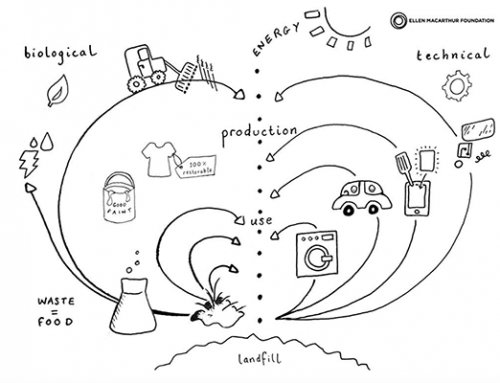Google, Walmart, Starbucks, Cargill, AkzoNobel, DELL, Addidas, McKinsey, Pwc, Siemens, Bayer, Roche, CocaCola and many more are upping the green game and making environmental moves (the link is a bit old but still relevant as an example). These companies are hiring. Even if you are not necessarily a hard core environmentalist, if you are interested in any of the following areas, then a career in sustainability or a related specialization in your field might be a good next step for you or it might become your differentiation point!
Sustainability is all about cutting back, whether it’s electricity, gas, materials, or packaging. This is basically the same thing as saying sustainability is about being thrifty or, in business terms, efficient!
If companies can figure out how to be more efficient with energy and resources while maintaining the same quality of product, going green enables them to cut costs – which means more profits. The product and process designers, procurement, production, supply chain and pretty much all departments of a company are facing the same challenge!
If companies can figure out how to be more efficient with energy and resources while maintaining the same quality of product, going green enables them to cut costs – which means more profits. The product and process designers, procurement, production, supply chain and pretty much all departments of a company are facing the same challenge!
Men have been shaving for over 100,000 years, but watching a commercial for Gillette might leave you with the impression that people have only recently figured out how to really do it. How many blades does that perfect razor have these days? Five? Eight? A hundred? Do we really need that many? Of course: everyone knows the more cutting edge(s), the better the product.
Sustainability is another chance for businesses to show that they’re on the cutting edge. Humans may have lived on Earth for a while now, but figuring out how to save it is still a state-of-the-art endeavor.
Sustainability is another chance for businesses to show that they’re on the cutting edge. Humans may have lived on Earth for a while now, but figuring out how to save it is still a state-of-the-art endeavor.
Nothing makes a business-person smile like getting a tax break. Taking steps towards going green can be a great way for companies to qualify for them. From energy credits to green roof rebates, there are a lot of sustainability-oriented tax incentive programs; but someone needs to identify them and follow up on the processes related to them.
People generally want to feel good about the company they work for. Considering all the political and sociological situation we live in today, this feeling is getting bigger and bigger. They want to have an impact, to be part of a workplace that’s on a mission to help the society (well, maybe they also want to have free food but trust us, that’s short-term happiness). Another reason why companies want to become more sustainable is the need to provide their employees with something to be proud enough to stick around. This can be even more appealing than a slightly better salary offered by another company.
It’s hard for a business to exist if no one wants to buy its product. The firms are catching on to the fact that a lot of potential customers care about sustainability and choose to support the companies that they see as aligned with their values. Since they really don’t want to lose out on business, the more pressure we collectively put on companies the greener they will try to get, improving their products and services.
If you haven’t heard, climate change is going to cause some problems — and that goes for businesses, too. According to some estimates, rising temperatures could mean a loss in global GDP of as much as $72 million by 2060. Obviously, that’s a bad sign for global business. Many companies realize that banding together now to mitigate climate change could help them in the years to come. Sustainability experts will have a key role to play: coming up with ideas on how to face such issues, with processes to repeat best practices and with indexes to measure the results.
Let’s be realistic: Whether because we finally pass tighter regulations or because scarcity will eventually drive resources to become too expensive, sooner or later businesses are going to have to orient themselves toward a more sustainable model. Making sustainability a priority now could mean smoother sailing through the future.
This might be hard to believe, but a lot of companies do care about sustainability because they believe that it’s the right thing to do. Which is good news, since businesses are in a prime position to make a difference — so the more companies jump on the environmental bandwagon, the better.
The article was based on this publication



![Ecosia it! [4min. reading time]](https://www.habits.ninja/wp-content/uploads/ecosia-logo-500x383.png)



![What does a cook do with oil after cooking? [4min. reading time]](https://www.habits.ninja/wp-content/uploads/400x700_fried-food-500x383.jpg)








